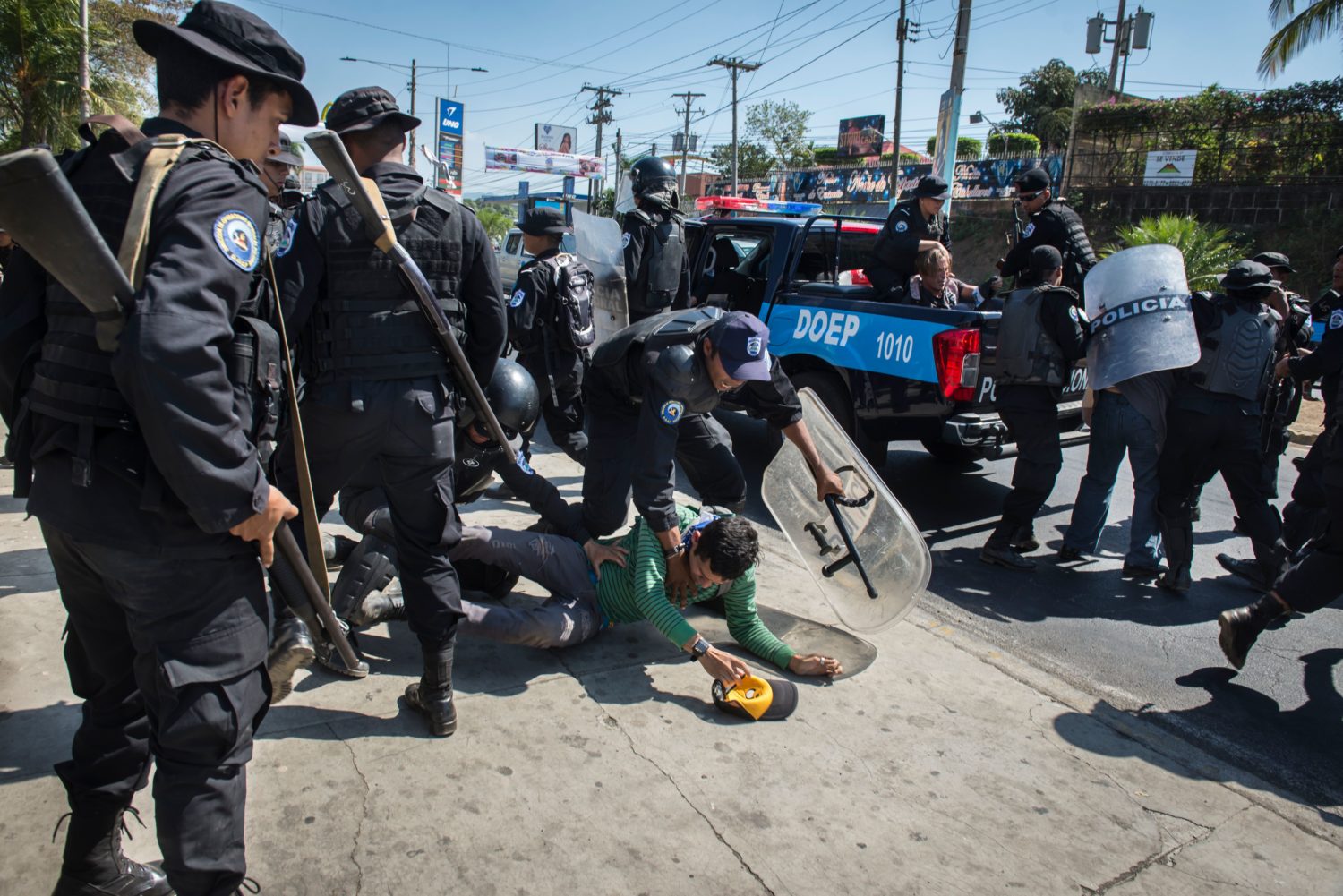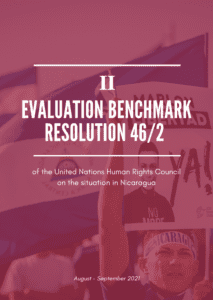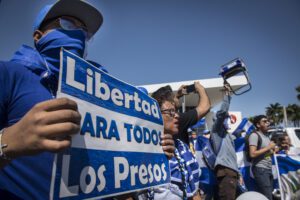Nicaragua: Campaign for an UN investigative and accountability mechanism
We believe in an open, equal and democratic Nicaragua where the human rights of all people, truth and justice are guaranteed. This is not currently possible in Nicaragua. Since April […]

We believe in an open, equal and democratic Nicaragua where the human rights of all people, truth and justice are guaranteed. This is not currently possible in Nicaragua. Since April 2018, the government has criminalised, arbitrarily detained, tortured and even killed those who promote human rights and those who question its way of governing. While reaching a peak in the runup to yesterday’s sham electoral process, its repressive policies are likely to persist over time, while the structural causes behind the country’s human rights crisis remain deeply rooted.
It is time for the United Nations to respond forcefully and create an international mechanism that ensures justice and accountability for Nicaragua people. This is why ISHR and Race and Equality as part of the Colectivo 46/2 – a coalition of international, regional and Nicaraguan NGOs – have launched a global call for a UN investigative and accountability mechanism for Nicaragua to be created by the UN Human Rights Council at its upcoming March 2022 session.
How has the UN responded so far?
Last March, the Human Rights Council adopted resolution 46/2, its third resolution on the human rights situation in Nicaragua, urging the Government to take a series of urgent measures to revert course on the country’s multi-pronged crisis. These range from freeing those arbitrarily detained and repealing restrictive laws, to protecting women and indigenous communities, and cooperating with the international community.
Since its adoption, we have sought to provide objective monitoring of government action – and inaction – to implement the resolution’s 14 recommendations, based on public information from the UN and Inter-American systems.
 We launch today our second Evaluation Benchmark of Nicaragua’s implementation of resolution 46/2. Based on these assessments, we conclude that:
We launch today our second Evaluation Benchmark of Nicaragua’s implementation of resolution 46/2. Based on these assessments, we conclude that:
-
The government of Nicaragua has taken no substantial, nor initial steps to implement any of the recommendations from resolution 46/2;
-
The government has taken a significant number of actions contrary to the recommendations, resulting in a closed civil society space and an increase in attacks on human rights defenders, journalists, presidential candidates, and dissidents.
Additionally, the Nicaraguan Government has not signaled any intention to resume meaningful cooperation with the international community, since it expelled the UN and Inter-American Commission on Human Rights (IACHR)’s human rights presence from the country in December 2018. During dedicated Human Rights Council meetings, it avoided addressing any substantial concern, instead rejecting all criticism as ‘interventionist and supremacist.’ In September, the Government failed to fulfill its human rights treaty obligations, by attending in ‘listening mode’ a review by the Committee on Economic, Social and Cultural Rights (CESCR) without responding to any questions, despite the ‘numerous extraordinary events that deserved to be addressed’.
What should the international community do?
Given the scale and gravity of rights violations being committed, and the Government’s protracted lack of willingness to address the crisis nor to cooperate with the UN, it is time the UN – through its Human Rights Council – appoints a group of independent international experts to inquire into the situation. In its last paragraph, resolution 46/2 called on the Council to ‘consider all measures available to strengthen the promotion and protection of human rights in Nicaragua’ – a call since reiterated by High Commissioner Bachelet.
The UN Human Rights Council should establish an international accountability mechanism for Nicaragua when it will consider its annual resolution on the country at its upcoming March 2022 session.
This mechanism should be adequately staffed and resourced, and mandated to investigate grave human rights violations taking place since April 2018, as well as its root causes; and to collect and preserve evidence with a view to ensuring that perpetrators of violations or abuses of international human rights law are held accountable.
On 14 December, High Commissioner Michelle Bachelet, as mandated by resolution 46/2, will present an oral update to the Human Rights Council on the “post-electoral” context in Nicaragua. We call on all States to ensure a strong joint position building on past cross-regional joint statements, to express deep concern over grave violations in the country and indicate support for the creation of a UN-mandated accountability mechanism at the 49th session of the Human Rights Council.
What can you do?

Managua, Nicaragua. 30/03/2019. Oscar Navarrete/ LA PRENSA.
Nicaragua needs justice and truth to get out of this crisis and recover as a society. Share our campaign and raise awareness with a journalist you know, your peers, or on social media, with the hashtags #MecanismoParaNicaragua and #SOSNicaragua.

